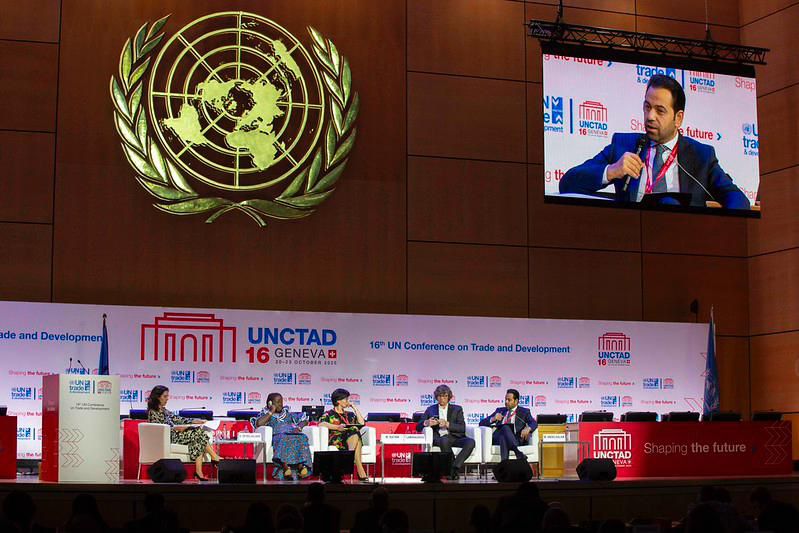Muslim Council of Elders Calls for Comprehensive Ethical Governance of AI to Balance Innovation and Human Protection
Judge Mohamed Abdelsalam: Artificial Intelligence Is an Ethical and Human Issue Touching the Core of Human Existence and Dignity
The Muslim Council of Elders participated in the 16th session of the United Nations Conference on Trade and Development (UNCTAD16), held in Geneva from October 20 to 23, 2025, under the theme “Harnessing Artificial Intelligence for Inclusive and Sustainable Development.” The conference saw extensive participation from experts, officials, and representatives of international organizations worldwide.
In his address during the session titled “Harnessing Artificial Intelligence for Inclusive and Sustainable Development,” His Excellency Judge Mohamed Abdelsalam emphasized that artificial intelligence (AI) is not merely a scientific or economic matter but a profoundly ethical and human issue that touches the essence of human existence and dignity. He underscored the necessity for technology to serve humanity without compromising its well-being.
Judge Abdelsalam noted that managing the digital transformation demands genuine collaboration among scientists, philosophers, religious leaders, and policymakers to ensure technology maximizes human good rather than perpetuating inequality and dominance among nations. He outlined three key strategies for developing nations to capitalize on AI opportunities: investing in human capital, fostering a fair and inclusive innovation ecosystem, and establishing balanced international partnerships rooted in knowledge and expertise exchange to promote shared development within a framework of mutual human responsibility. Judge Abdelsalam also commended the United Arab Emirates for its support to developing countries through infrastructure development and training young talent to keep pace with rapid advancements in AI, thereby contributing to global sustainable development.
The Muslim Council of Elders called for the adoption of comprehensive ethical governance for AI that balances innovation with human protection through principles of responsible innovation, digital justice, transparency, and accountability. Judge Abdelsalam stated, “No matter how advanced technology becomes, it lacks a conscience and does not comprehend compassion.” He clarified that “AI is not the end of humanity’s journey but a new phase in its quest to explore its potential and capabilities,” adding that “intelligence alone is insufficient to build a better world unless guided by wisdom and humanity.”
Judge Abdelsalam highlighted the Muslim Council of Elders’ initiative, “A Joint Document on the Ethics of Artificial Intelligence,” developed in collaboration with Al-Azhar and the Holy See reflects the ethical and spiritual responsibility to address major technological challenges, ensuring humanity remains at the core of the digital transformation while embedding principles of dignity, justice, and responsibility in modern technology development.
He concluded by asserting that “progress without ethics is gain without purpose.” He noted that religious leaders, led by His Eminence Dr. Ahmed Al-Tayeb, Grand Imam of Al-Azhar and Chairman of the Muslim Council of Elders, have consistently affirmed that ethical balance is not an obstacle to development but a fundamental pillar. He also added, “When innovation is guided by the spirit of human fraternity and ethical wisdom, AI will not only advance our economies but also elevate human dignity.”

